Learning with Landmarks is a series highlighting ways that Landmarks’ public art collection inspires learning and teaching at The University of Texas at Austin.
In the Spring 2019 semester, School of Architecture Professor and Principal of MF Architecture, Matt Fajkus encouraged students from his graduate Vertical Studio course to consider the relationship between Amistad América by José Parlá and the surrounding architecture. The mural lives in a high traffic area of Rowling Hall. Students researched the artist’s work and imagined hypothetical, innovative solutions to preserve the mural while creating a harmonious blend of art and architecture.
Discover the students' design process and proposals below:
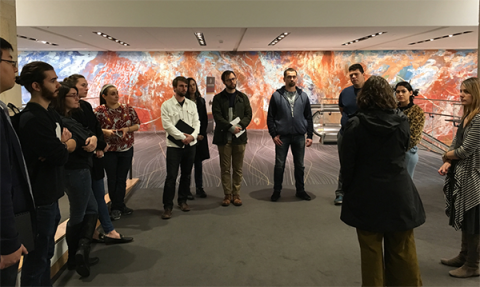
Figure 1. Architecture graduate students visit Amistad América with Landmarks staff.

Figure 2. For context, Pietro Mendonca and Dylan Thomas built a scaled 3D model of Rowling Hall and Amistad América.
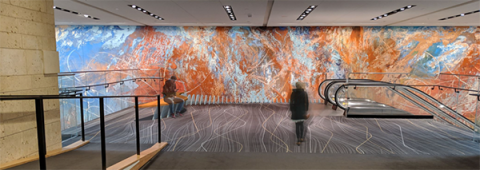
Figure 3. Front view of a proposed dual-purpose bench design intervention by Allison Chance, Dylan Thomas, and Andrew Brown.
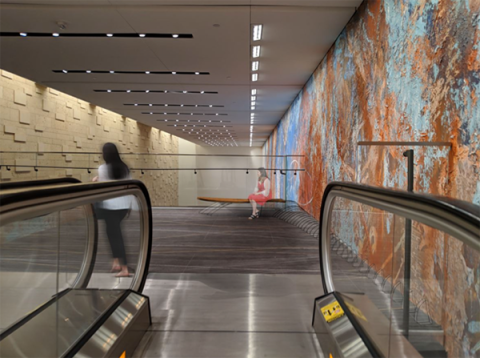
Figure 4. Side view of a proposed dual-purpose bench design intervention by Allison Chance, Dylan Thomas, and Andrew Brown.
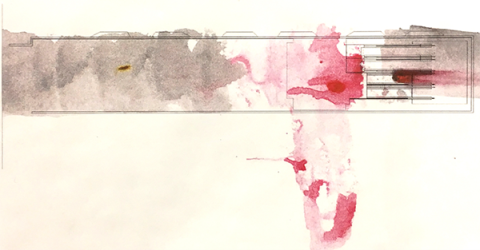
Figure 5. Watercolor study by Andrew Brown of the existing floor plan analyzing public circulation and traffic patterns.

Figure 6. Abstract studies of floor plans by Italia Aguilera used to determine specific areas to place a design intervention on the mezzanine adjacent to Amistad América.

Figure 7. Contrast and tonal studies of Amistad América by Italia Aguilera used to ensure complementary visual patterns in the final design intervention.
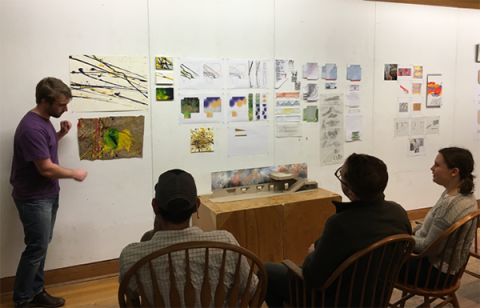
Figure 8. Justin Perkins presenting his design process at a pin-up critique.
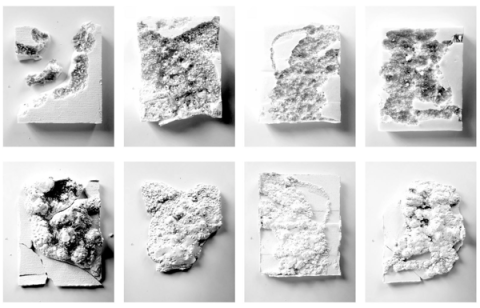
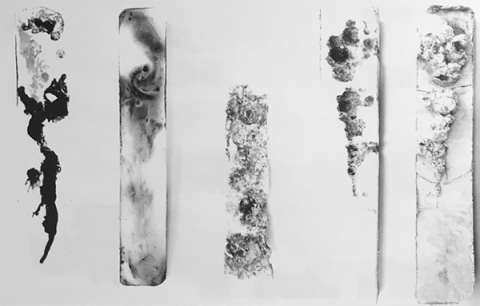
Figures 9 & 10. Abstract sculptural models by Kevin Rivera Samuel analyzing the circulation and traffic patterns of the mezzanine used to identify the location and shape of a design intervention.
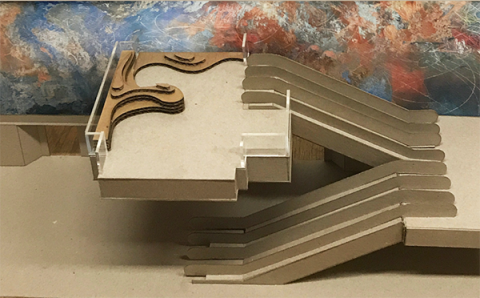
Figure 11. Scale model of seating as a design intervention proposed by Kevin Rivera Samuel.
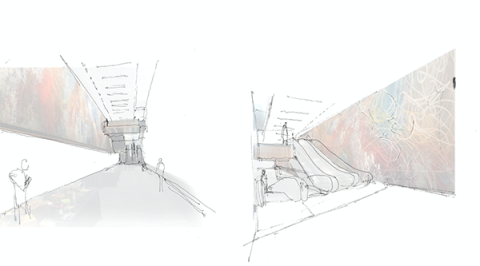
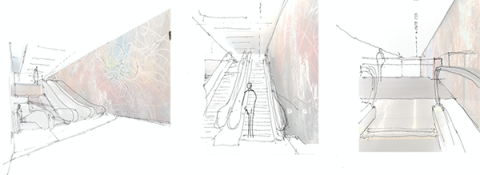
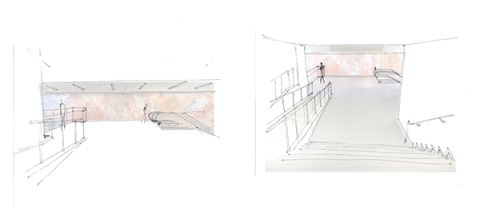
Figures 12-14. Spatial sequence studies by Pietro Mendonca used to examine the varying views of a proposed design intervention.
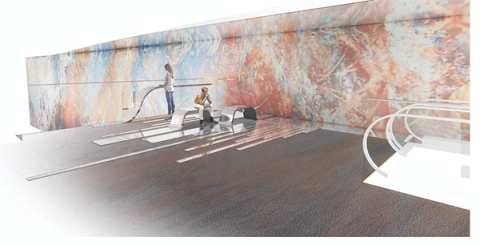
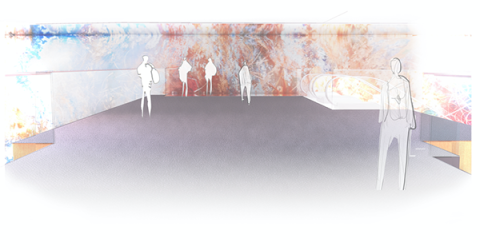
Figures 15 & 16. Design intervention proposals by Pietro Mendonca using reflective surfaces as furniture/barriers to create a pause and caution near the mural.
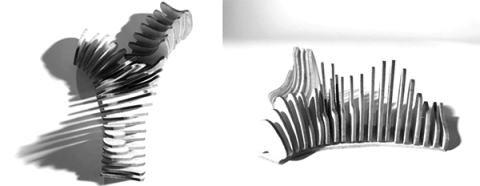
Figure 17. Parametric bench seating by Jenny Pranskevich and Catherine Kanter.

Figure 18. An undulating screen by Ying Zhang, Justin Perkins, and Inna Pevsner.
